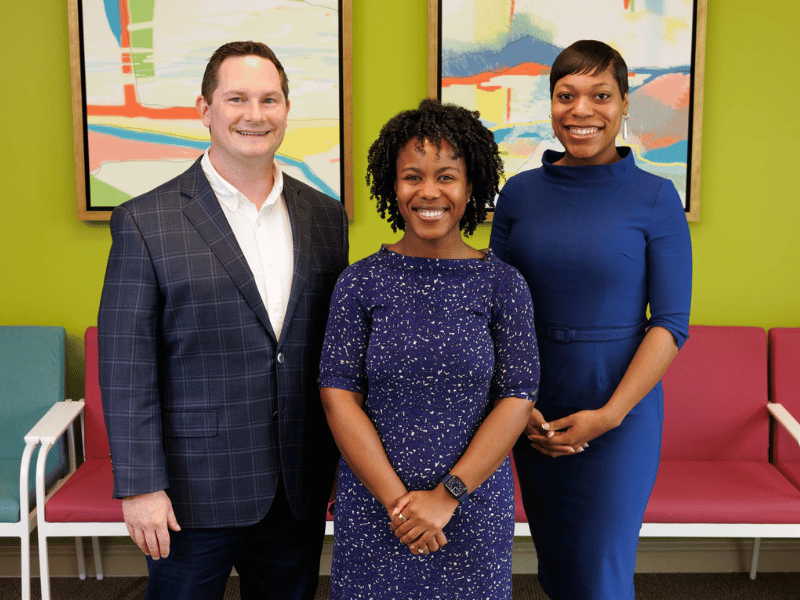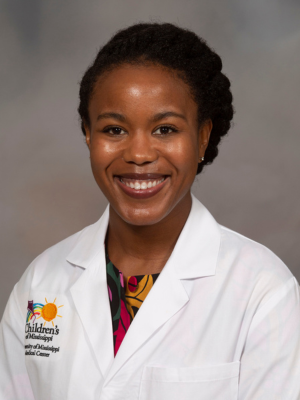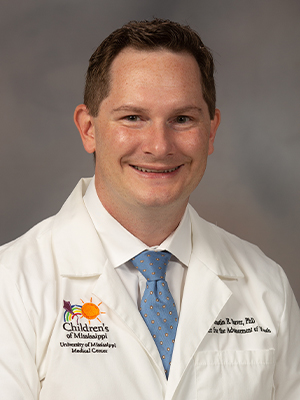UMMC seeks African American participants in world’s largest autism research study

Researchers in SPARK can’t advance the understanding of autism if a broad cohort of families isn’t included.
The world’s largest study of autism spectrum disorder is working with the University of Mississippi Medical Center and other health organizations to include more families from underrepresented groups.
UMMC's pediatric arm, Children’s of Mississippi, is one of five locations in the United States dedicated to helping the study include more African American families. Increased inclusion of underrepresented groups is essential to SPARK’s goal of gaining a greater understanding of the genetic causes of autism.
SPARK also seeks to support the work of all researchers and develop culturally relevant engagement across a variety of communities.

“Any individual with autism (ASD) and their family can join SPARK through Children’s of Mississippi’s Center for Advancement of Youth,” said Dr. Gabrielle Banks, assistant professor of child development. “SPARK recruitment is active and passive. To increase the number of families in the study from underrepresented groups, our team has been making phone calls and hosting community outreach programs.”
SPARK includes more than 100,000 people with ASD and 175,000 family members. More than 30 of the nation’s leading medical centers have joined SPARK to help in reaching individuals and families affected by ASD.
Founded in 2011, the Center for Advancement of Youth, or CAY, offers multidisciplinary coordinated care for children with behavioral or developmental conditions throughout the state from its location in the Highland Bluff building in northeast Jackson.

Dr. Dustin Sarver, associate professor of pediatrics, forged the connections between SPARK and UMMC as a co-investigator, starting in 2016. “We had this opportunity because of the foundation that he worked to create,” Banks said.
Researcher Ayana Davis, a graduate student at Jackson State, has been leading the UMMC SPARK outreach to families since 2022.
“We’ve talked with more than 900 families by phone,” Davis said. “Connecting with patients and their families has meant listening to them and answering any questions they have. Sometimes families just need someone to talk to, and I want to be that person.”
Another SPARK goal is to create a transparent and trusted research environment and experience for all participants and their families, Davis said.
Banks praised Davis’ efforts to enlarge the SPARK cohort. “She has gone above and beyond in reaching out to families and creating a relationship with them based on a foundation of trust,” she said.
Independent adults with a diagnosis of autism spectrum disorder and legal guardians of those diagnosed with ASD can join SPARK online. Joining the study requires donation of DNA through a saliva sample or a cheek swab, which can be mailed in or dropped off at the Center for Advancement of Youth, or CAY. Davis has also picked up samples from families for SPARK.
UMMC is in its second 18-month grant round, each funded by a $120,000 supplemental grant.
Researchers in the genome-wide association study are looking for gene variations that may contribute to the neurological differences of ASD. Some people with ASD have a genetic condition that resulted in ASD. Other causes are not yet known. The abilities of those with ASD vary significantly. Some people with ASD need support in their daily lives while others need little to no help.
About one in 36 children has been identified with autism spectrum disorder, or ASD, according to estimates from the U.S. Centers for Disease Control and Prevention’s Autism and Developmental Disabilities Monitoring Network. ASD occurs in all racial, ethnic and socioeconomic groups.
Regardless of whether a family joins SPARK or is served by CAY, Davis provides them with resources in the community and state.
“While SPARK recruitment is important, it’s a secondary goal,” Banks said. “Connecting families to resources and giving them the support they need is primary.”
The other national SPARK sites dedicated to increasing numbers of underrepresented families include Texas Children’s Hospital in Houston, Cincinnati Children’s Hospital Medical Center, Kennedy Krieger Institute in Baltimore and Children’s Healthcare of Atlanta, a partner of Emory University School of Medicine.
As one of the national sites boosting SPARK’s outreach, CAY has registered an additional 106 SPARK participants from the African American community so far. CAY has hosted community support programs at St. John’s Missionary Baptist Church and New Horizon Church International in Jackson, and future programs are in the works.
In April, Banks presented her research, “Implementing Culturally Sensitive Recruitment Methods to Increase Diversity in Genetics Research,” at a SPARK symposium in Kansas City.
UMMC is partnering with the Color of Autism Foundation to present a family resource fair this fall.
Joining the SPARK study is simple and free, Davis said, “and the best benefit is knowing that you’ll be helping advance the understanding of autism and improve lives.”
To learn more about SPARK or to join, visit sparkforautism.org or email Davis at adavis25@umc.edu.


